I tried the following code, but results from running DLT pipeline in an error:
if kwargs.get("df_tableoperation", None) is not None : ^ SyntaxError: invalid syntax
The idea is to dynamically generate a series of tables from configurable metadata tables. Where I would ultimately keep rule sets that are applied conditionally.
I cannot picture how to accomplish this, would I need to explicitly declare all of the @dlt.expect_<*> in the framework and pass in empty dicts if I did not want to apply any rules?
def outer_create_bz_table( **kwargs )
@dlt.table(name = bz_tablename, comment="test")
if kwargs.get("df_tableoperation", None) is not None :
@dlt.expect_all_or_drop({"Null Location" : "LOCATION is null"})
I was expecting this to run as a DLT pipeline.
Ultimately I want to dynamically call any number of @dlt.expect_<suffix> to operate on any number of columns for respective tables generated with the outer_create_bz_table(). I got some confirmation of a generalized framework being feasible when I tried the same dynamic calling of if kwargs.get() : dlt.apply_changes(someDynamicArg). The only differences between that and with the above approach are two:
- Expectations make use of the @ decorator
- Expectations occur before the function def that returns a df
(Edit) Looked more into the idea of decorators, I've also tried the following. But results were still a syntax error but pointing out x = a_function_to_decorate()
def expect_decor(a_function_to_decorate):
def the_wrapper_around_the_original_function():
@dlt.expect_all_or_drop({"Null Location" : "LOCATION is null"})
x = a_function_to_decorate()
return x
return the_wrapper_around_the_original_function
# And then
def outer_create_bz_table( **kwargs )
@dlt.table(name = bz_tablename, comment="test")
@expect_decor
def : return df # some df
I do not see any reference to accomplishing this in the documentation on multiple expectations:



